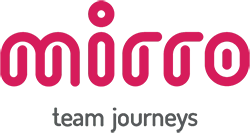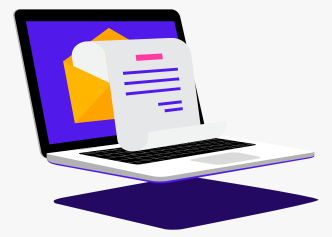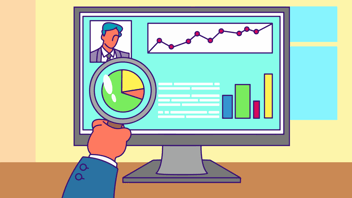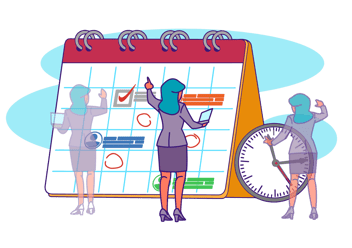How to Manage Remote Gen Z Workers

The COVID-19 pandemic had a massive impact on company cultures all around the globe, changing people’s perspectives on the workplace. Most notably, the pandemic introduced hybrid and remote work models, forcing leaders to rethink their previous traditional management styles.
This critical shift in how we work is especially relevant in the context of a new generation entering the workforce — Generation Z. Also known as Zoomers, these new kids on the block will make up 27% of the workforce by 2025.
As the newest generation of employees, they have different expectations and challenges to overcome in the workplace. If you are a manager or an executive, you may wonder how you can engage and motivate this new generation.
In this article, you'll find crucial traits of Gen Z, their main challenges, and valuable tips on boosting their productivity and better managing them remotely. Let's dive right into it!
Who is Generation Z?
Born between 1997 and 2012, Gen Z or Digital Natives are the children of Generation X and the precedents of Generation Alpha. As they're approaching their mid-20s, most Zoomers have already entered the workforce, making them businesses' new market focus.
Generation Z is the most diverse generation the world has ever known, enforcing its consciousness of systemic racism, gender identity, and intersectionality.
They were born and raised in the internet outbreak, so they're avid users of technology and social media.
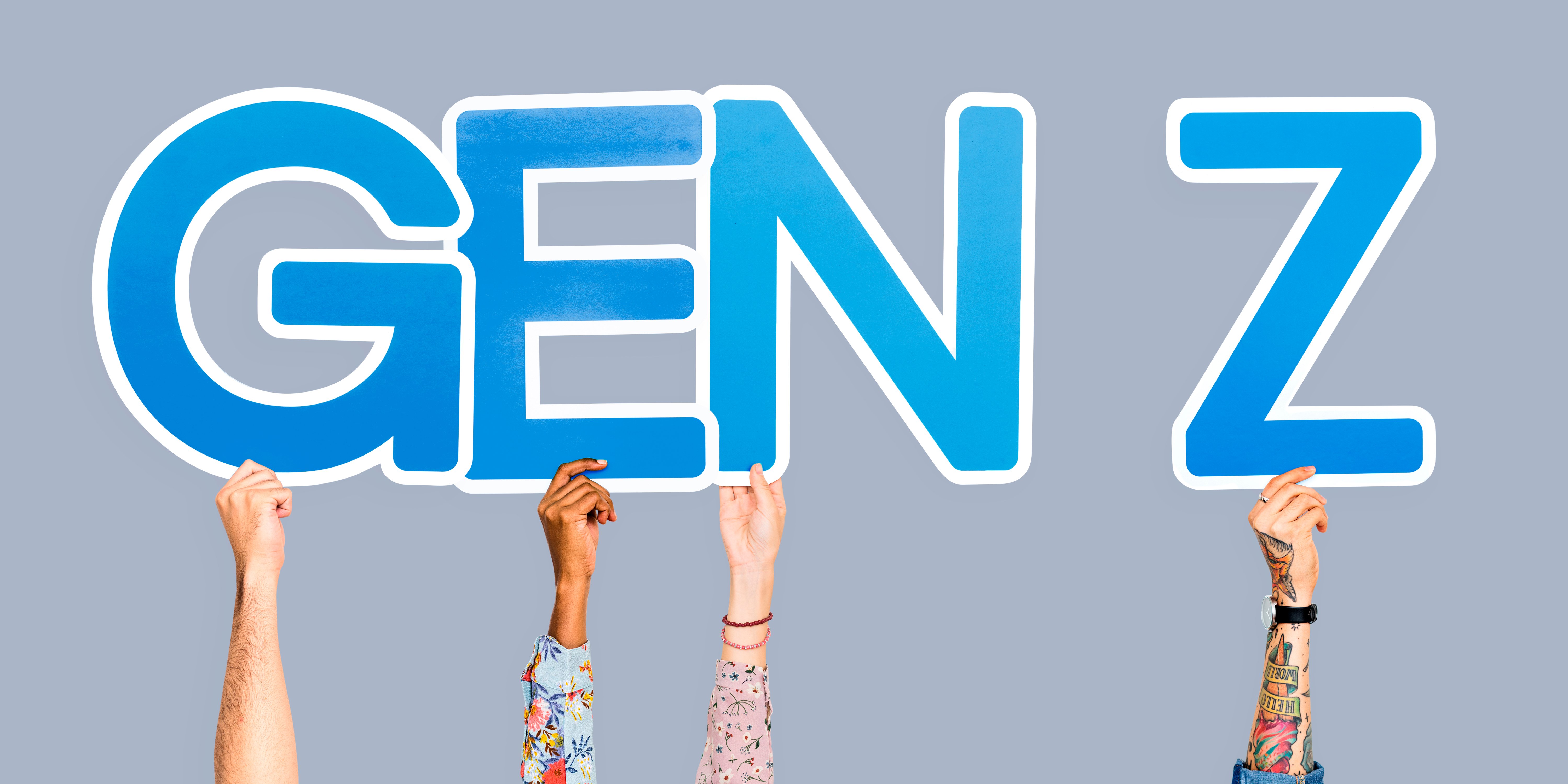
What are the main characteristics of Gen Z?
To retain, attract, and engage Digital Natives, HR managers, and leaders must understand this generation's essential traits.
Before we get into the tips on managing them remotely, let's see what Gen Z's main characteristics are and how they differ from other generations of employees.
They are tech-savvy
Born and raised in the Digital Age, Generation Z has used technology from a young age and successfully integrated it into their daily lives.
They are up-to-date with the latest trends, consume a lot of social media, and have a short attention span due to their extended use of technology.
The bottom line: Companies interested in hiring this generation will have to make sure to use technology tools, as Digital Natives like things to be automated and efficient.
They have entered the workforce at tough times
Most Gen Z people entered the workforce during the COVID-19 pandemic. However, some of them were active workers before the pandemic.
Because of their young age, they are overrepresented in service industries like restaurants and travel, which were highly affected by the pandemic.
Additionally, according to ADP Research Institute, Gen Z experienced massive job layoffs in 2021, which negatively affected their views on work and employers.
The bottom line: This is a clear indicator that organizations will have to work harder to earn back Zoomer's trust in employers.
They care for diversity and inclusion
Gen Z is the most racially and ethnically diverse age group, so they prefer working in environments that promote diversity and inclusion.
63% of Gen Z workers say working with people with diverse backgrounds is crucial. They expect their employers to represent their perspectives in the workplace.
The bottom line: Businesses hiring and managing Gen Z employees must focus on diversity and inclusion to make them feel like they belong.

They seek independence and flexibility
As Gen Z has entered the workforce in times of change, their expectations toward work are very different from previous generations.
Highly accustomed to hybrid or remote working models, Zoomers want independence and are not fond of micromanagement.
They also seek flexibility and expect their employer to rate their performance based on achievements rather than time spent on specific tasks.
The bottom line: Companies that endorse a flexible work schedule and encourage independence at work are more likely to attract and retain Gen Z employees.
Generation Z remote work challenges
Although all people were affected by the pandemic, Gen Z faced many other challenges in the transition to working from home.
Let's briefly go over the remote work challenges Generation Z faces and the solutions organizations can adopt to help them overcome these obstacles.
-
Productivity
According to a TenSpot study, 54% of the Gen Z employees surveyed feel less productive when working from home.
While employers can't fully control their people's work environment, they can help with the basics, such as ensuring they have everything they need regarding office set-up.
Another thing organizations can do to boost Gen Z's productivity is to help them with their time management.
Consider offering them more training on how to stay motivated or sharing tips and tricks on better organizing their daily tasks and completing them in a timely manner.
-
Engagement
Remote workers face a common challenge: they often feel disengaged while working from home.
In 2021, 16% of Gen Z respondents from a global survey said they experience issues contributing verbally during conference calls.
Help Gen Z employees overcome this challenge by turning on your camera during video calls and encourage conversations by asking them about their day.
-
Boredom
Almost half (49%) of Gen Z employees from the same TenSpot study confessed they were bored with their remote job.
This high number indicates that isolation can feel monotonous and result in boredom and lack of interest.
Luckily, there are plenty of opportunities for social engagement among coworkers that organizations can adopt.
You can start by surveying your people to find out what activities they would be interested in pursuing. Then, consider organizing social gatherings outside work hours or virtual events.
-
Mental health
Zoomers put their mental health first, partially because they have more access to information but also because they have struggled with anxiety, stress, and other mental health issues amid the pandemic.
Research shows that 75% of Gen Z employees have previously left roles for mental health reasons. This clearly states that this generation prioritizes their well-being and will not settle for less.
Luckily, as different associations, institutions, and brands continue to raise awareness of mental health problems, many resources are available for organizations caring about their people’s well-being.
Here are just some of the things your company can do to support your employees' mental health:
✅ use our software to audit your company culture to ensure it is free of toxic behaviors;
✅ enforce a new HR policy to support mental health at work;
✅ do workshops on raising awareness and combating the effects;
✅ provide counseling and coaching sessions;
✅ give access to mental health resources.
Actionable advice for managing Gen Z remotely
Generation Z flourishes in creative, flexible, and open-minded workplaces. They seek jobs where they can be themselves and that challenge their status quo.
The more you understand this generation, the better you will be at managing them remotely.
Let's discover some actionable steps companies can implement to manage Gen Z in the workplace effectively.
Tip #1: Be transparent about the company's mission, vision, and values
As the first truly global generation, Zoomers are well-known for their awareness and involvement in current events and community issues.
Their beliefs are fundamental to them, and they like participating in and supporting issues they are passionate about. As a result, they believe in good corporate citizenship and want to be associated with a business that shares similar values.
Make sure to highlight your company's mission, vision, and values. To keep Gen Z interested and motivated, you’ll need to constantly remind them that they are part of the team and actively contribute to business goals.
Other essential things to consider are transparency and promoting a positive company culture. Encourage Gen Z employees to speak their minds and share feedback.
Listen to their needs and make them feel heard and appreciated. This will only motivate them to work harder.
Tip #2: Embrace modern technology
Gen Z and technology go together like peanut butter and jelly. They are the first generation to grow up with technology, so they are both tech-driven and tech-dependent.
Zoomers are not fans of manual work and inefficient processes because they know technology tools can help them optimize their tasks.
As a result, they prefer working for companies that integrate modern technologies into their business operations and automate their daily processes.
So, to better manage Gen Z employees, you need to satisfy their digital needs by providing them with the proper tools and devices.
Tip #3: Encourage career advancement and personal growth
As the youngest generation on the market, Generation Z acknowledges the importance of personal and professional development.
A 2021 IBM study found that 33% of Gen Z workers voluntarily changed employers in 2020. This whopping number suggests that this generation prioritizes positions that allow them to develop their skills.
Employers will need to put in the extra effort to ensure Gen Z sticks with them. Therefore, encouraging personal growth and career advancement are mandatory.

Below are some policies managers can adopt to motivate Generation Z:
👉 invest in a high-quality onboarding process;
👉 offer continuous training to help Zoomers grow their skill sets;
👉 set precise, achievable, and challenging OKRs;
👉 encourage direct and transparent communication;
👉 provide constant feedback;
👉 empower people to make their own decisions;
👉 recognize their achievements.
Pro tip: Technology can be your friend here. Consider using a performance management tool like Mirro to increase alignment with clear OKRs.
Tip #4: Foster team collaboration
Regardless of how much Gen Z appreciates independence, they value social interaction.
Most of them work in remote or hybrid settings, so it's significantly more challenging for them to nurture virtual relationships.
Therefore, organizations should be equipped with all the necessary tactics to help Gen Z employees integrate within a team.
Here are a couple of tips that will help you establish and maintain connectivity with Zoomers:
✅ adopt a "buddy system" so a more experienced employee can assist the new hire;
✅ use communication tools to encourage casual conversations;
✅ choose video calls instead of emails or phone calls;
✅ facilitate cross-departmental projects and collaboration;
✅ promote social activities and host team-building events.
Tip #5: Promote a healthy work-life balance
Gen Z employees are more likely to stay with companies that allow them to maintain a healthy work-life balance.
Zoomers are unwilling to compromise their mental health by doing overtime or stressful work activities, leading to burnout and decreased productivity.
Consider implementing a flexible work schedule with a good work-life balance if you want to keep this generation motivated and happy. In this case, you need an employee leave management system to support wellbeing within your team.
Help them set boundaries by promoting a culture of "unplugging” which enforces a healthy balance between personal and professional time.
Additionally, give them space to pause when necessary, even though they must complete their work.
Tip #6: Provide financial stability
According to 2019 Statista data, 70% of Gen Z indicated that making money was highly important to them.
They have entered the workforce at challenging times, so financial stability is vital for attracting and retaining Generation Z.
Plus, keep in mind that they have plenty of hiring opportunities all around the globe thanks to remote work, so this generation will not settle for less.
Beyond providing them fair compensation, employers must consider other benefits like health insurance, meal tickets, compensation perks, and wellness subscriptions.
A compensation management tool like Mirro can benefit your organization by saving time, ensuring fairness, enhancing transparency, and aligning pay with performance.
Managing Generation Z in the modern workplace
Gen Z employees possess numerous qualities that make them highly productive and efficient in remote or hybrid settings.
However, they are also vulnerable to specific difficulties due to the tough times they have entered the workforce.
After understanding their main characteristics and needs, employers can adopt many tactics to ensure they manage Gen Z as expected.
This article covers everything executives and HR professionals need to know to keep Zoomers engaged, motivated, and productive.
Download our free Manager's Toolkit to discover more insights on setting effective OKRs, optimizing performance management, giving constructive feedback, and implementing successful onboarding processes.
